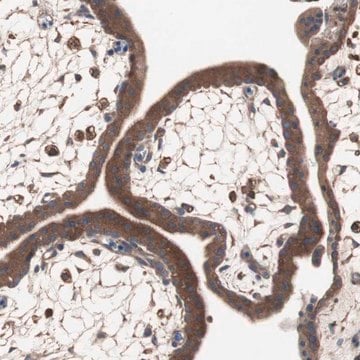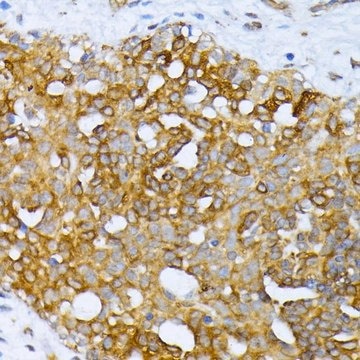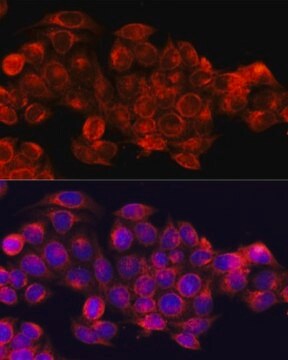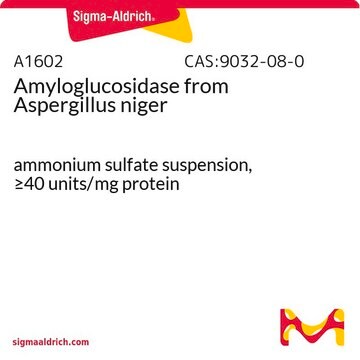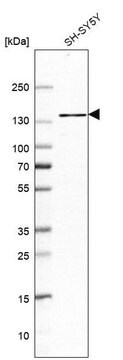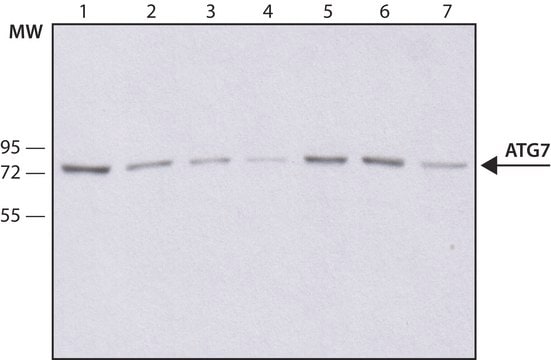A2856
Anti-ATG7 antibody produced in rabbit
affinity isolated antibody, buffered aqueous solution
Synonym(s):
ATG7 Antibody - Anti-ATG7 antibody produced in rabbit, Atg7 Antibody, Anti-APG7, Anti-APG7-like, Anti-APG7L, Anti-Apoptosis-specific-protein, Anti-Autophagy protein 7-like, Anti-Ubiquitin activating enzyme E1-like protein
About This Item
Recommended Products
biological source
rabbit
Quality Level
conjugate
unconjugated
antibody form
affinity isolated antibody
antibody product type
primary antibodies
clone
polyclonal
form
buffered aqueous solution
mol wt
antigen ~75 kDa
species reactivity
rat, human, mouse
packaging
antibody small pack of 25 μL
technique(s)
immunoprecipitation (IP): 1-2 μL using human U87 cell lysate
western blot: 0.5-1 μg/mL using whole extracts of mouse 3T3 cells
UniProt accession no.
shipped in
dry ice
storage temp.
−20°C
target post-translational modification
unmodified
Gene Information
human ... ATG7(10533)
mouse ... Atg7(74244)
rat ... Atg7(312647)
General description
Immunogen
Application
- for quantitative real-time polymerase chain reaction of autophagy-related genes
- in immunofluorescence and immunoblotting
- in in vivo acetylation/deacetylation of autophagy proteins
Biochem/physiol Actions
Physical form
Disclaimer
Not finding the right product?
Try our Product Selector Tool.
Storage Class Code
12 - Non Combustible Liquids
WGK
WGK 1
Flash Point(F)
Not applicable
Flash Point(C)
Not applicable
Personal Protective Equipment
Certificates of Analysis (COA)
Search for Certificates of Analysis (COA) by entering the products Lot/Batch Number. Lot and Batch Numbers can be found on a product’s label following the words ‘Lot’ or ‘Batch’.
Already Own This Product?
Find documentation for the products that you have recently purchased in the Document Library.
Customers Also Viewed
Our team of scientists has experience in all areas of research including Life Science, Material Science, Chemical Synthesis, Chromatography, Analytical and many others.
Contact Technical Service